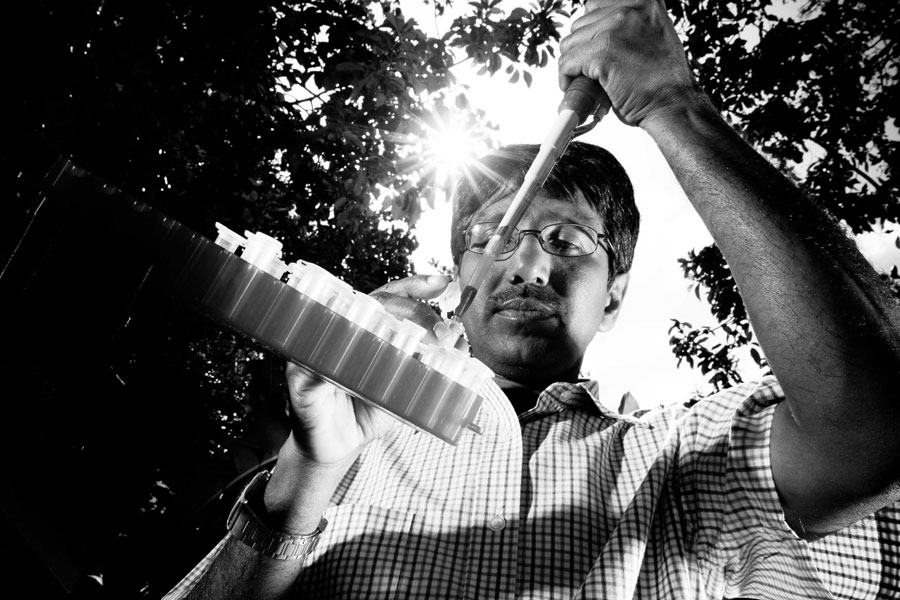Professor Pathmanathan Umaharan
PROFESSOR
DEPARTMENT OF LIFE SCIENCES
FACULTY OF SCIENCE AND AGRICULTURE
ST. AUGUSTINE CAMPUS, TRINIDAD AND TOBAGO
Tel: (868) 663-2373 • Email: Pathmanathan.Umaharan@sta.uwi.edu
PROFILE
Professor Pathmanathan Umaharan is the holder of a PhD (1990) from The University of the West Indies, and Postdoctoral Fellowship from the International Laboratory for Tropical Agricultural Biotechnology, The Scripps Research Institute, La Jolla, California (1995). He joined UWI’s teaching staff in August 1991 and was promoted to Senior Lecturer in 1999 and Professor in May 2008: Professor Umaharan is the winner of the UWI Guardian Life Premium Teaching Award (2002). He is also the recipient of the Best Researcher Award (UWI Principal’s Award, 2003), and the Certificate of Excellence in Research (CARDI, 2005). Professor Umaharan has 50 refereed publications and two book chapters/monographs. He has released a variety of bodi resistant to Cowpea severe mosaic virus and Cercospora Leaf Spot diseases (September 1995), and more recently, developed a number of blackeye pea varieties resistant to the same diseases. Professor Umaharan is currently involved in developing genetic resistance in cocoa to two important cocoa diseases – black pod disease and witches’ broom disease. Professor Umaharan led the EUFORUM/CARIFORUM funded project on ‘Developing resistance to bacterial blight disease in anthurium’. New bacterial blight resistant varieties, the first of its kind in the world, developed in collaboration with Kairi Blooms Ltd are about to be released, thus providing the region with the potential of becoming a global industry supplying planting material to the tropical world. He has a patent pending for the Biotechnological approach to screening for resistance to bacterial blight disease in anthurium (Filed: 2007). Professor Umaharan has supervised 12 PhD and eight MPhil students, three of which are award-winning graduate students.
RESEARCH INTERESTS
Professor Umaharan’s work has focused on improving the resistance of crop plants to pest and diseases through genetic means. However, in more recent times it has extended into genetically improving yield and quality.
• Bioengineering novel colours in anthurium – Developing novel spathe colours (blue, purple, yellow) in anthurium will skyrocket the the Caribbean anthurium industry to the top in the world. He and his team have initiated a project with the aim of studying the molecular biology of colour formation and using the information to genetically engineer new colours.
• Improving hotpepper yield – Hotpepper is indigenous to the Caribbean region with tremendous genetic variability. Although the Caribbean peppers are well known for their pungency and flavour they are confined to only the ethnic markets by their cousins – ‘the chile peppers’ mainly due to their poor yield. Professor Umaharan is trying to exploit the genetic variability to improve yields from 12-20 t/ ha to over 100t / ha.
• Improving yield of dwarf year-round pigeonpea varieties – A number of new varieties are being evaluated for release to farmers shortly. These combine good yields with high pod quality.
